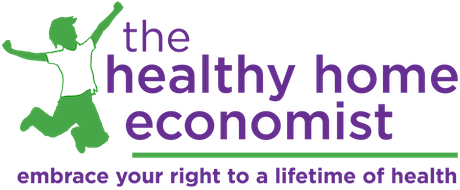 Scientists from the Seattle based Fred Hutchinson Cancer Research Center have stumbled upon a very inconvenient truth.
Scientists from the Seattle based Fred Hutchinson Cancer Research Center have stumbled upon a very inconvenient truth.
Chemotherapy is so damaging to the healthy cells surrounding a tumor that it changes their DNA, causing fibroblasts, those cells involved in wound healing and maintaining connective tissue, to produce a molecule called WNT16B that actually encourages prostate tumors to grow and invade neighboring cells.
The researchers also confirmed these findings for breast and ovarian cancer tumors.
The unsettling findings reported by the journal Nature Medicine in August 2012, helps explain why cancer patients sometimes derive little to no benefit from chemo treatments, essentially enduring the worse than death side effects for naught.
Peter Nelson, the study co-author said, “The increase in WNT16B was completely unexpected”.
It also sheds light on why tumors might shrink from an initial round of chemo only to regrow later becoming resistant to further rounds of the devastating treatment. Peter Nelson confirms the eventual resistance tumors develop to chemo adding:
“WNT16B, when secreted, would interact with nearby tumour cells and cause them to grow, invade, and importantly, resist subsequent therapy“.
Professor Fran Balkwill, a UK based expert on the tumor microenvironment commented that these findings are in line with other research which has demonstrated that “cancer treatments don’t just affect cancer cells, but can also target cells in and around tumors”.
Researchers seem unfazed by these disquieting results that, though unexpected, did not seem to give them any pause whatsoever in questioning chemo as a valid tumor treatment for the long term.
Instead, they chose to stick their heads further into the sand suggesting that drugs to inhibit the production of WNT16B were in order for “new and improved” chemo treatments.
If one drug doesn’t work, let’s just add another, then another, then another ….
Apparently, “chemo brain” affects cancer researchers too.
Sarah, The Healthy Home Economist








Hard to imagine the wrongheadedness of this whole chemo concept. Had a conversation with Howard Schwartz, Max Gerson’s–the creator of Gerson Therapy in the 1930’s–grandson, and not only does he look 50 at 70, but he cited Dr. Otto Heinrich Warburg’s Nobel award winning research about the anaerobic nature of cancer cells. These are simply our cells which have mutated because of the acidic toxicity created in the body. All of this is driven by animal product consumption. Period.
Of course that is too simple and contrarian to our statist society. A vegan diet, juicing and liver cleanses. Pretty simple to live vibrantly into your hundreds.
Sometimes diet doesn’t make one single difference…
http://nursebecomesthepatient.tumblr.com/post/54118457734/ive-seen-a-lot-of-posts-lately-about-foods-that
I’m curious if to know if you actually read the Nature article as you provided pulls up the abstract onlyh – you must either subscribe to the journal or purchase the article to read it. The other article you linked did not review the study design at all (ie patient numbers, treatment type, etc.) I reviewed the tables and listings for the Nature article (these are available at no cost) and it appears that this was primarily an animal study, specifically mice. With only the little information I was able to find (via your links) I would be very hesitant to conclude that this applies to humans as well. Did you read the full Nature article or merely the abstract?
And cancer is, what – – – just a quaint side effect of chemo?
Other than insulin, I cannot think of another drug which is “necessary” to extend life. Not. Even. One.
There are plenty. Consider cystic fibrosis patients. What has medicine done for them? from cff.org:
“In 2009, the median predicted age of survival was in the mid-30s. The median predicted age of survival is the age by which half of the current CF Patient Registry population would be expected to survive, given the ages of the patients in the registry and the distribution of deaths in 2009.
The steady rise of the median predicted age of survival suggests how improvements in treatment and care are advancing the lives of those with CF. In 1955, children with CF were not expected to live long enough to attend grade school. Today, thanks to continued Foundation-supported research and specialized care, an increasing number of people with cystic fibrosis are living into adulthood and leading healthier lives that include careers, marriage and families of their own.”
Cancer treatments are not evaluated by WNT16B levels at the end of therapy. They are evaluated by how swiftly the cancer progresses, and survival. I don’t know about you, but I know which one I’d care about as a patient.
This info is nice to have and will hopefully lead to improved therapies and outcomes, but it does not negate the fact that people can live longer on chemotherapy. That’s not to say that all chemotherapy is worth doing. Living longer on a poison IV is not always better than a shorter life without it. Unfortunately, some drugs will be approved by extending life my a few months, but there are certainly some that can make a difference of years or decades.
So true; glad I did all alternatives to heal my cancer naturally.
This is an interesting take on the world of chemotherapy and why it’s such a fraud.
http://www.mnwelldir.org/docs/fraud/chemo.htm
Oh that must have been a surprise!!! Not!
they knew all along I’m sure!!
There is a new book out called “The Cancer Killers the cause is the cure” written by Dr. Charles Majors and Ben Lerner. It is a MUST read for everyone. It explains what cancer REALLY is and how you can cure it naturally even providing protocals and successful treatment center options.It also talks about PREVENTION and how not to get cancer. Dr. Majors gives his account of being diagnosed with weeks to live to cured and in remission. It absolutely can be done without “cut, poison, burn”